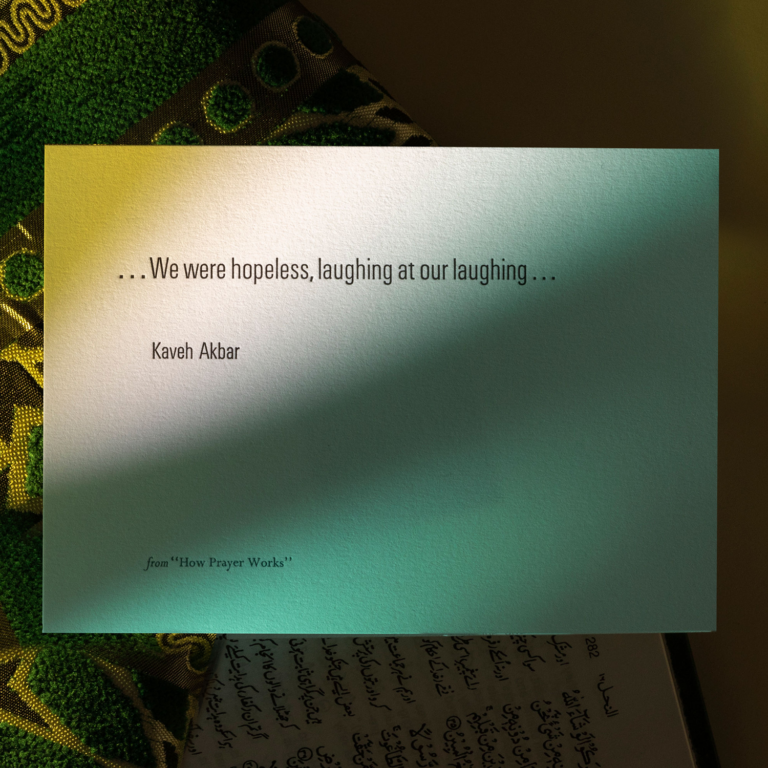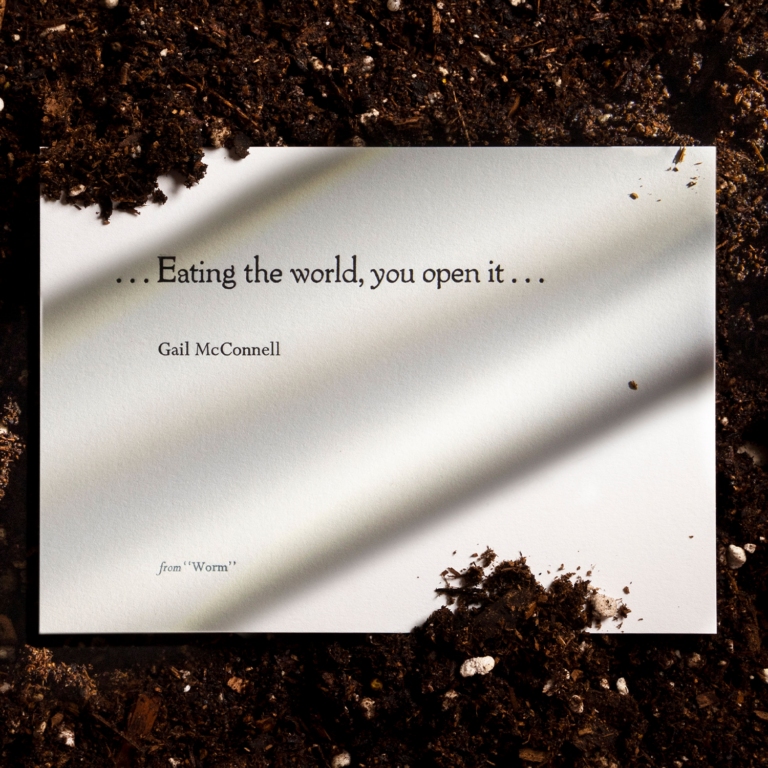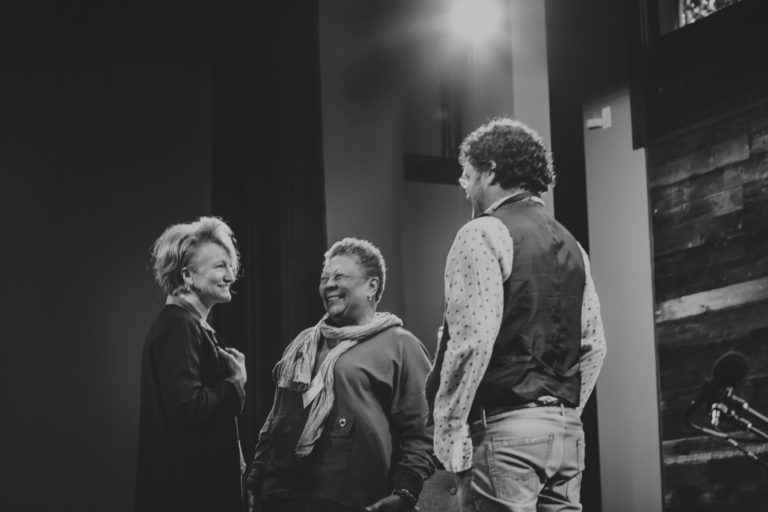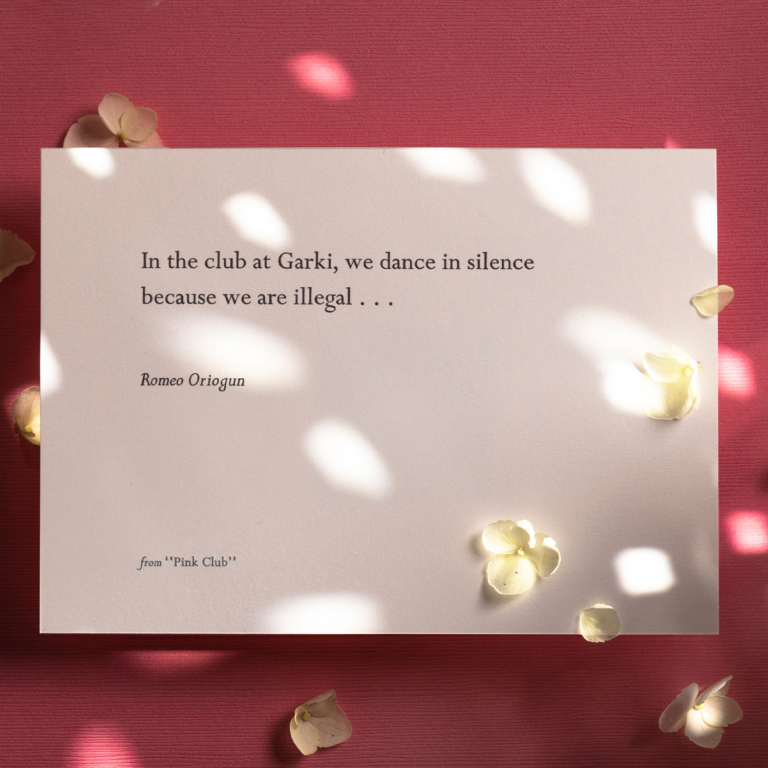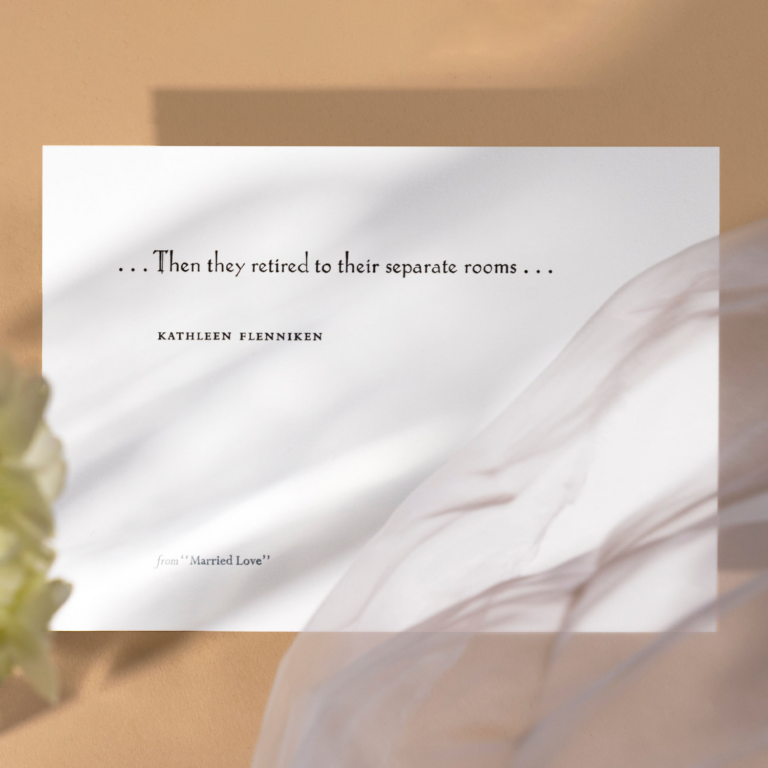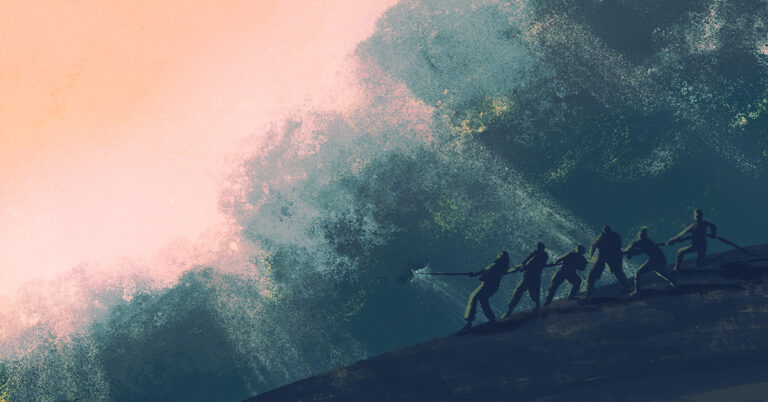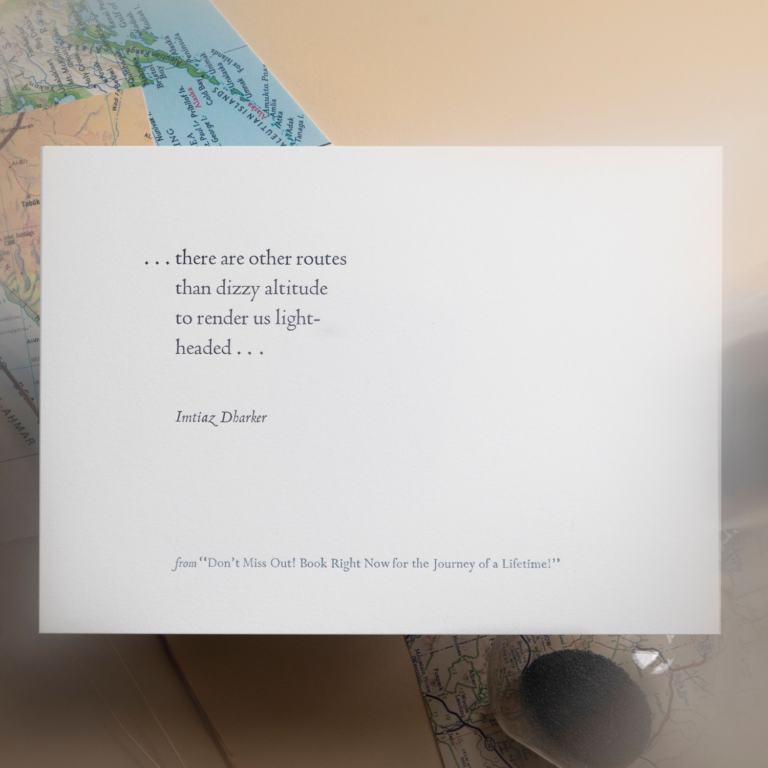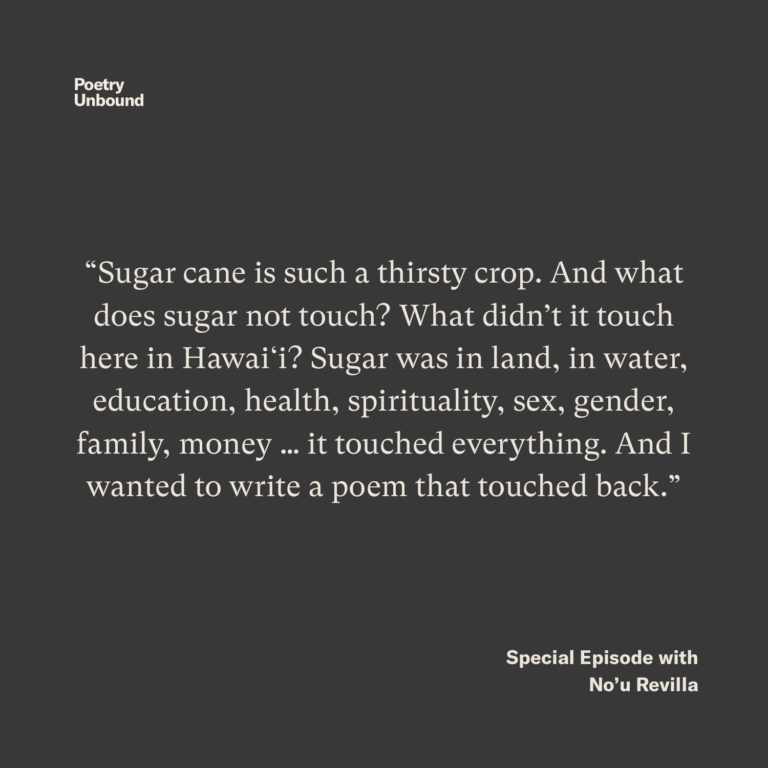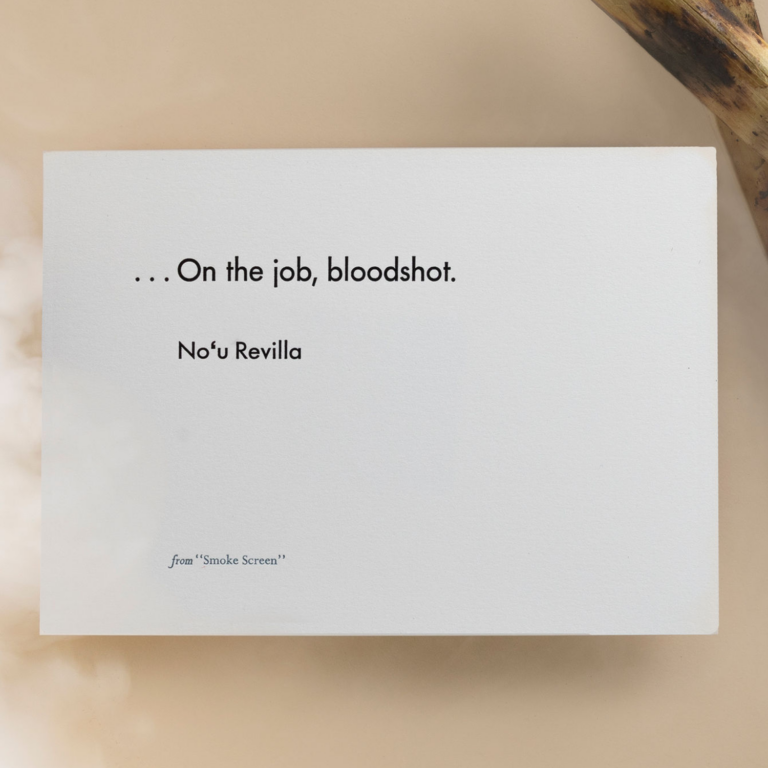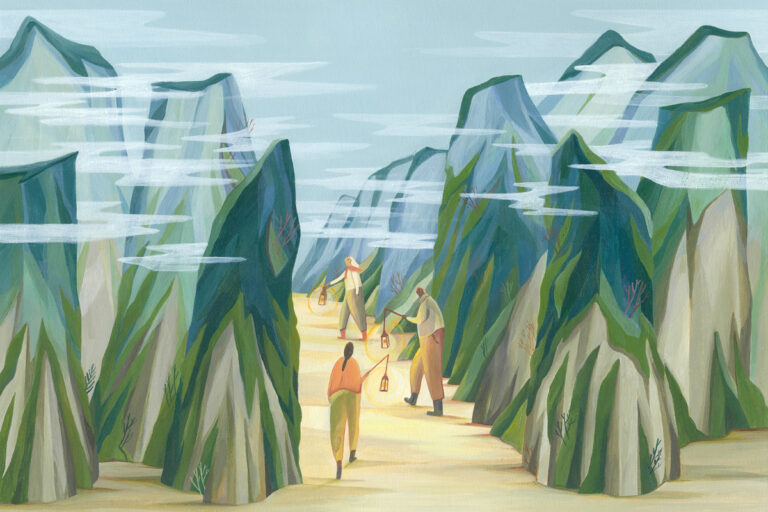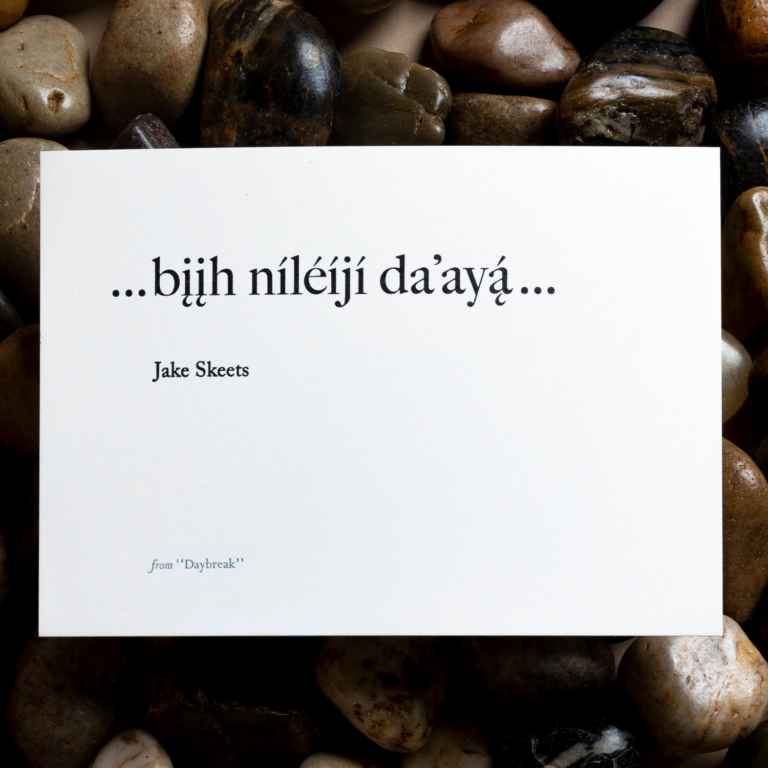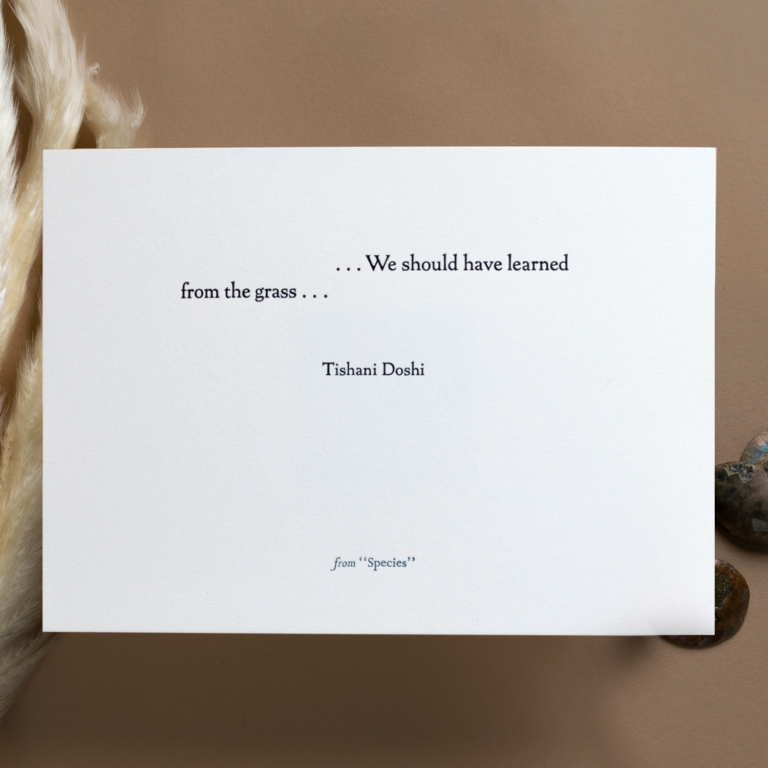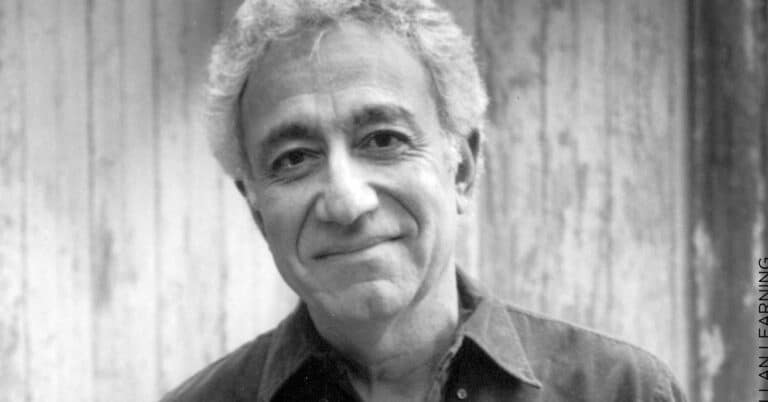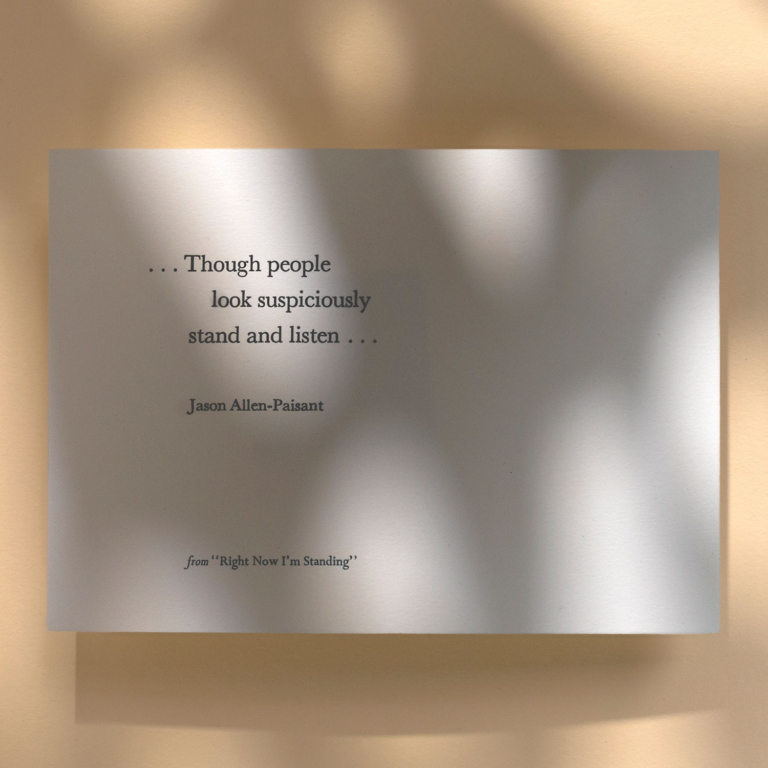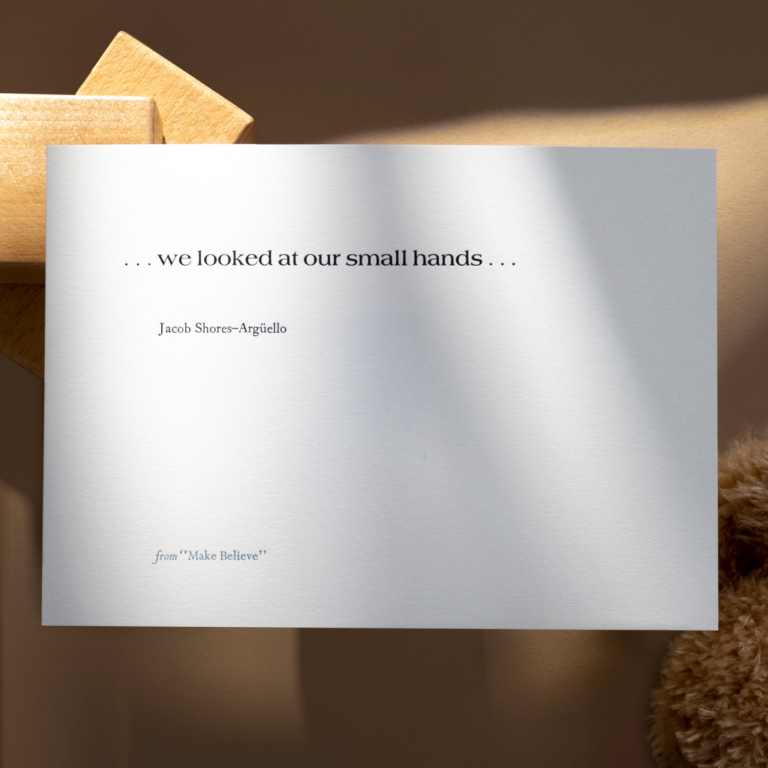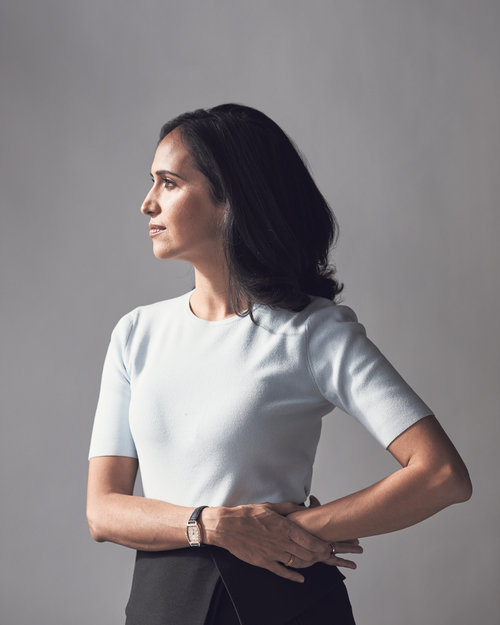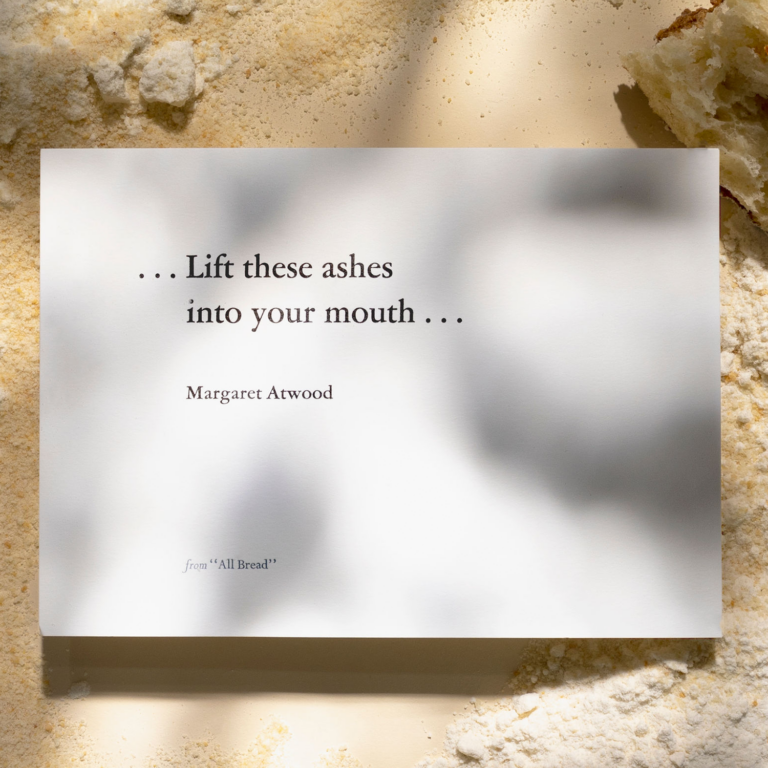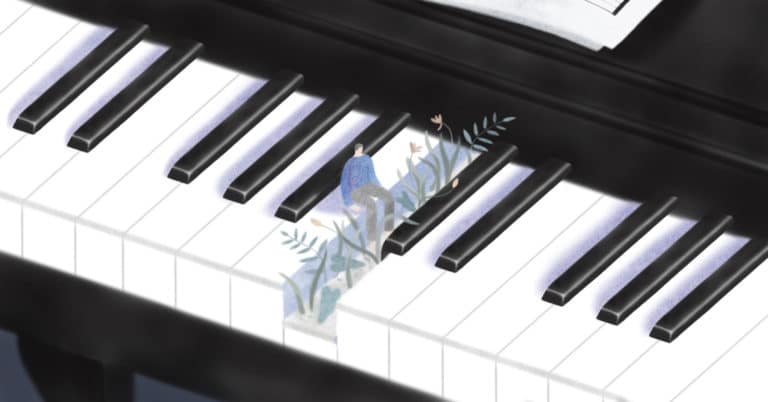A narrative prose poem about two brothers — one on a visit home from college — who are turning to face east in their small shared room. With seven years between them, one is a young man and the other, the poet, is nearing his teens. Their prayer is interrupted by a sudden surprising noise, and the sound of this makes them fall over each other in laughing. Their bodies, their joy, their uncontrollable delight is the prayer of their own lives.
Podcasts
View
- List View
- Standard View
- Grid View
912 Results
In a poem that addresses a worm directly as “you,” Gail McConnell considers how these tube-shaped beings live: ingesting the earth, aerating it, digesting it, making its nourishment accessible for all kinds of growth. The worm burrows, knows dead things, and knows underground ways. Tiny and segmented though a worm is, nonetheless it senses that “all there is // can be gone through.” The poem’s close attention to the worm’s tactics of survival seems to indicate that much could be learned from its underground ways.
October 28, 2021
Pádraig Ó Tuama and Marilyn Nelson
“So let us pick up the stones over which we stumble, friends, and build altars”
Where to turn to find my place of standing when it feels like the world is on fire? This question surfaced in a public conversation Krista had just a couple of years ago with Pádraig Ó Tuama and Marilyn Nelson, two poet-contemplatives. Pádraig weaves together social healing, poetry, and theology. Marilyn is a lyrical excavator of stories that would rather stay hidden — yet as she coaxes them into the light, they lead to new life. This conversation is a pleasure and balm, and a reminder that the ruptures and unease and reckonings of what we call “this moment” were all before us before the pandemic. Pádraig and Marilyn’s offerings are beyond wise, and distinctly tender and powerful for this now.
A club is a place for dancing, for abandon, for music, and for meeting strangers. Romeo Oriogun recalls a gay club that was for all those things, but also for escape. Living in a place where queer lives were under threat, he offers a praise song for this cathedral of safety and movement. Outside the world is silent, but inside the bar, people carry stories of their own desire, of their families, of their hopes; both for the future and the present.
In a poem of extraordinary poise, Kathleen Flenniken recounts her parents’ lively parties, their rich social life, their summer trips, and their friendships: friendships that were not always straightforward. The poem closes with an observation of a moment of sexual tension between her mother and another man. Kathleen’s right there, but feels like she’s barely noticed. Everyone goes to bed alone, and we are left with the poet and her awareness of what lay underneath the surface.
Katharine Hayhoe is one of the most esteemed atmospheric scientists in the world. She’s made her mark by connecting dots between climate systems and weather patterns and the lived experience of human beings in their neighborhoods and communities. She’s also an ambassador, if you will, between the science of climate change and the world of evangelical Christian faith and practice, which she also inhabits. To delve into that with her is to learn a great deal that refreshingly complicates the picture of what is possible and what is already happening, even across what feel like cultural fault lines. If you want to speak and walk differently on this frontier, this is a conversation for you.
A love poem with a playful title that sounds like an ad from a travel agent unfolds into a poem about choosing to stay at home. Imtiaz Dharker’s husband died in the years between this poem’s setting and its publishing. The poem, too, moves from long lines across the page into shorter and shorter lines. In sensuality, locality, intimacy, and simplicity, this poem is all about the man she loved, and moves from noise to focus: “You Are / Here” its final lines assert.
While preparing for this week’s episode of Poetry Unbound, host Pádraig Ó Tuama began an email correspondence with the poet, No‘u Revilla. The exchange was so rich that Pádraig asked No‘u to join him in conversation. Together they talk about poetry, queerness and how Hawaiian language, culture, and history show up in her poetry.
The life of a sugar worker is the center of this poem: a worker whose body and person bear the imprint of that industry, with its demands and smoke and exhaustion. The worker in question is the poet’s father, and No’u Revilla brings us into a consideration of how he takes pride in work that depleted him, how he needed to find ways to recover from work that exhausted him, how in his body he carries the story of Hawai’i and its indigenous people.
We’re in a time as thick with uncertainty as with possibility. Many of us are still, and again, exhausted — and yet opening, fitfully, to what we’ve learned and have been called to at this moment in the life of the world. Toward nourishing that, the second offering in our new series, The Future of Hope, with social creative Darnell Moore in conversation with filmmaker dream hampton. The influence they wield spans hip-hop to Netflix to the Oscars; from the Movement for Black Lives to Surviving R. Kelly.
It is an honor to enter this tender, intimate conversation between two dear friends. In them we experience a muscular hope in justice oriented toward redemption — and calling out in a spirit of “calling in.”
In a slight change to the normal format, host Pádraig Ó Tuama speaks with the poet Jake Skeets who reads his poem “Daybreak,” a poem combining Diné language with English, a poem rich with observation: of land, of growth, of memory, of place. Land is not just a tool to use for food, nor is it a blank space for human projection. In this poem, Jake Skeets reflects on an ethical engagement with land: an engagement that sees land as itself, not just for its uses.
In a fantastical poem about the future, Tishani Doshi explores the present. She imagines a future where agriculture, forestry, and cultivation are things of the past, distant memories learned by humans existing on other planets, or on intergalactic spaceships. That distant future is reflecting on how it should have learned from the grass, abundant, generous, sustainable. This poem of dystopian magic-realism is more real than magic, offering advice on thriving, while noting the knife-edge of self-destruction so familiar to human behavior.
October 7, 2021
Mike Rose
The Deepest Meanings of Intelligence and Vocation
“I grew up a witness,” Mike Rose wrote, “to the intelligence of the waitress in motion, the reflective welder, the strategy of the guy on the assembly line. This then is something I know: the thought it takes to do physical work.” Mike Rose died in August, yet the particular way he saw the world resonates more than ever before as our debates about the future of school and work only intensify. He argued with care and eloquence that we risk too narrow a view of the way the physical, the human, and the cognitive blend in all kinds of learning and in all kinds of labor. Mike Rose’s intelligence would enlarge our civic imagination on big subjects at the heart of who we are — schooling, social class, and the deepest meaning of vocation.
In a poem considering trees, Jason Allen-Paisant opens up many associations with trees: in a woodland, there’s a dead tree, from which new forms of life are finding sustenance. He, a Black man in the woods, is aware of people looking suspiciously at him. The poem reflects on how trees were used for building the ships of enslavers, who considered countries and people their property. In light of this, he shares a nature poem about all the things that nature holds.
In a short poem recalling a childhood response to grief, Jacob Shores-Argüello brings us into the fantasy world of a child: leaving an ill adult in a hospital bed, he and his cousin take to the mountains, turn magically into bears, and begin tearing holes in the earth for rest while the world continues below. Are they escaping? Or playing with rage? This extraordinary poem is a thing of wonder and survival.
September 30, 2021
Priya Parker
Remaking Gathering: Entering the Mess, Crossing the Thresholds
Priya Parker has become the voice of what it means to gather in this world we inhabit now. She is helping remake the “how” of coming together — and more importantly, the “why.” Long before the pandemic, she points out, we had fallen into rote forms for staff meetings, birthday parties, conferences, shared meals. Virtual or physical, this time of regathering offers a threshold we can decide to cross with imagination, purpose, and joy. This is a conversation with so much to walk away from and put immediately into practice.
In a poem of four stanzas, Margaret Atwood traces bread from its growth in bone-nurtured soil, to the warm ovens of baking, to the table, to the mouth of one person, then the hands of someone breaking bread for many. From the cow-dung in the earth to the salt of the hands of the person kneading the bread, this poem is like a meditation on the material reality of what nurtures the body and what nurtures the soul, and is a secular examination of what breaking bread might mean.
One of the great challenges of life is to learn to be alone peaceably, at home in oneself. The pandemic forced many of us inside both physically and emotionally, even if we were not home on our own. We’ve been forced to work out the difference between loneliness and solitude. With teachers across the ages, and drawing on his life from monasticism to marriage, Buddhist writer and scholar Stephen Batchelor teaches how to approach solitude as a graceful and life-giving practice.
The Pause
Join our constellation of listening and living.
The Pause is a monthly Saturday morning companion to all things On Being, with heads-up on new episodes, special offerings, event invitations, recommendations, and reflections from Krista all year round.
Search results for “”
View
- List View
- Standard View
- Grid View
Filters


